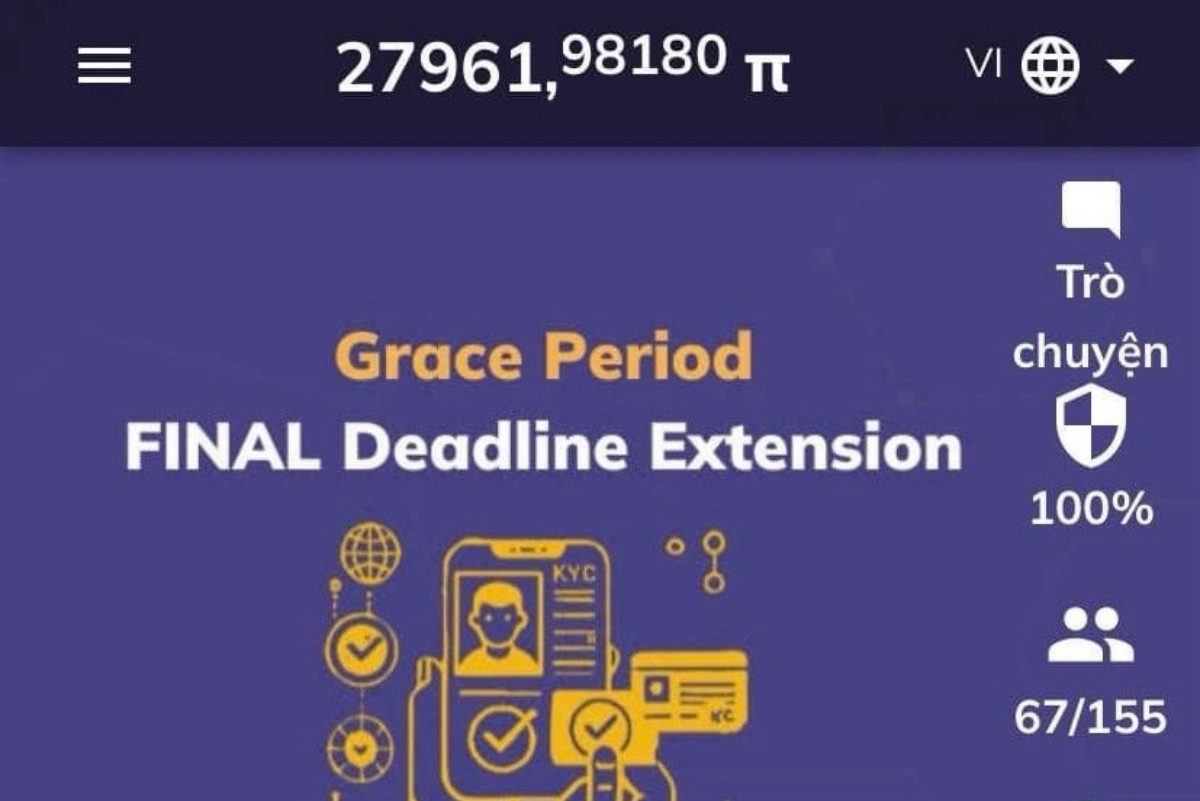
The price of Pi Coin has dropped sharply in recent days, now trading around $1.70, yet many Pi miners continue to hold on - even though they are unable to unlock and transfer their tokens.
After reaching $3.00 on February 27, Pi Coin from the Pi Network project saw a sudden price decline, dropping 40% after February 28. The current trading range is between $1.50 and $1.70.
Why is Pi Coin dropping?
According to a cryptocurrency investor, one major factor behind the price decline is that Binance, the world's largest crypto exchange, has not yet decided to list Pi Coin. This uncertainty has led to a wave of sell-offs from investors.
On February 28, Binance concluded a community survey on whether to list Pi Coin. Out of nearly 300,000 voters (representing 0.12% of Binance’s total users), 86% (about 250,000 people) supported listing Pi on the exchange.
However, Binance stated that the survey results were for reference only and did not constitute a commitment to list Pi. The exchange will continue evaluating Pi Coin based on standard listing procedures before making a final decision.
Miners keep the faith despite locked Pi holdings
Despite being unable to unlock and transfer their Pi to exchanges, many miners remain committed. Some have thousands—even tens of thousands - of Pi Coins still locked, yet they continue mining.
Dang Vy, a miner holding 28,000 locked Pi Coins, says he is not discouraged and still mines Pi daily.
"I believe the Pi Core Team will keep their promises and not flood the market with unlocked Pi," Vy explained. "If they release everything at once, it could cause users to abandon Pi or shift to newer projects."
He believes the Pi Network team is strategically delaying the unlock process to prevent a massive sell-off. "If they allow full access now, many people might cash out immediately, causing market instability," he said. "The gradual unlocking approach was announced by the Pi Core Team, and I trust they will stick to it to protect the project."
Huong Lan, another miner in Ho Chi Minh City, has 2,500 Pi Coins locked but still mines daily, saying it requires minimal effort. She has unlocked 200 Pi Coins but has not sold them, believing that Pi’s price will rise in the future.
Pi Network sets March 14 deadline for KYC verification
The Pi Core Team recently announced that March 14 will be the final deadline for miners to complete Know Your Customer (KYC) verification. This is the last extension for users to transfer mined Pi to the Mainnet. Those who fail to verify by this date will lose their mined Pi forever.
Pi Network stated that the deadline extension is meant to help users who have struggled with KYC verification by giving them more time to complete the process.
Hanoi police warn about Pi Coin investment risks
On February 28, Hanoi Police issued a warning stating that Pi Coin and other cryptocurrencies are not recognized as legal assets in Vietnam. This means any disputes, scams, or losses related to Pi transactions will not be protected by Vietnamese law.
Additionally, under Vietnam’s State Bank regulations, cryptocurrencies are not legal payment methods. Anyone using Pi or other digital currencies for transactions could face fines between $2,000 and $4,000 (50-100 million VND) or even criminal charges under Article 206 of the Penal Code.
Hanoi Police further warned that Pi Coin currently has no real-world utility, and its value is speculative, leading to misunderstandings about its true worth.
Authorities also cautioned that some scammers are creating fake Pi Coins or fraudulent Pi applications to steal user data and assets. Investors are urged to be cautious, verify information carefully, and avoid risky transactions to prevent financial losses.
Hai Phong